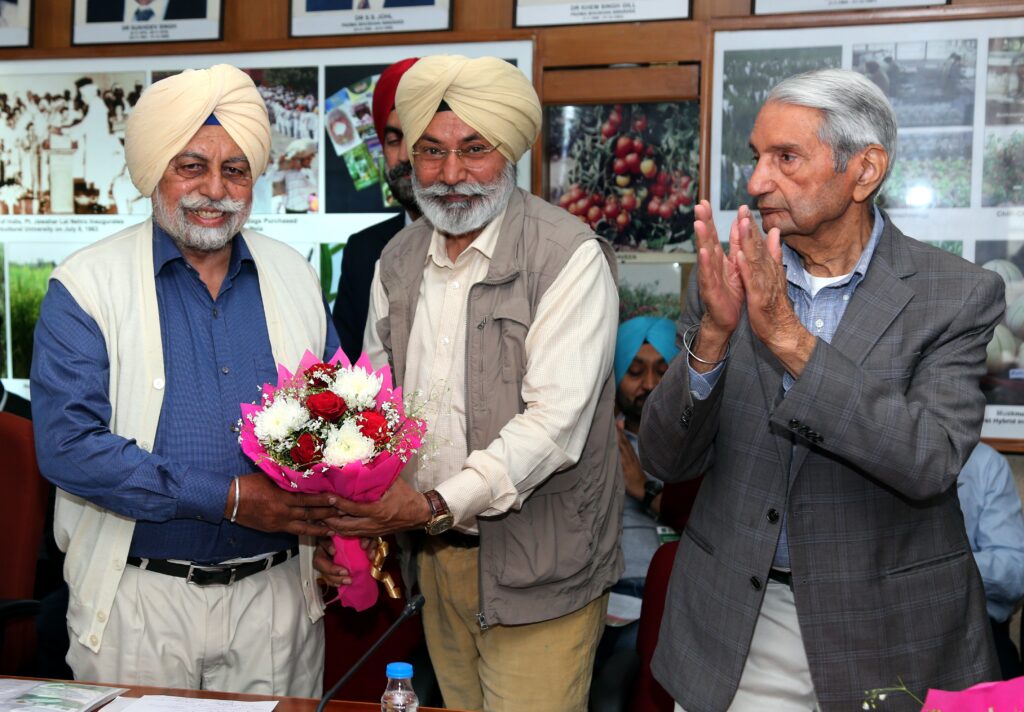PAU AND IRRI TRAIN YOUNG RESEARCHERS IN SCREENING OF RICE DISEASES AND INSECT-PESTS

LUDHIANA, MARCH 26: Amrik Singh Prince
Aiming to bolster research capabilities on rice pathological screening, the Punjab Agricultural University (PAU) and the International Rice Research Institute (IRRI) organized a two-day comprehensive “Hands-on-Training to Screen Emerging Diseases and Insect-Pests of Rice” for the young researchers. The workshop focused on the intricate processes of screening rice diseases and insect-pests, a vital aspect of rice breeding, ensuring crop health and productivity. The training provided participants with practical insights into the identification, pathogen multiplication, high throughput screening, and advances in managing various diseases affecting rice cultivation. Experts from both PAU and IRRI led the sessions, offering valuable expertise and guidance to the enthusiastic cohort of young researchers.
The global authority on Rice Breeding and a World Food Prize Winner Dr Gurdev Singh Khush emphasized the significance of such collaborative initiatives in empowering the next generation of agricultural scientists.
Dr Satbir Singh Gosal, Vice-Chancellor, PAU, highlighted the importance of equipping researchers with practical skills to address emerging challenges in rice cultivation effectively.
During the opening ceremony, the Director of Research Dr AS Dhatt emphasized the critical role of rice in global food security and the substantial losses incurred due to diseases and pests. Additionally, he underscored the invaluable contributions that plant pathologists and entomologists could make in combating these challenges.
Dr Sankalp Bhosale from IRRI expressed his delight for the novel initiative, emphasizing its potential to foster collaboration and knowledge exchange among researchers.
Dr GS Mangat, Additional Director of Research (Crop Improvement), while proposing a vote of thanks, expressed that the mutual cooperation between PAU and IRRI highlighted a shared commitment to nurturing innovation and excellence in agricultural research, paving the way for sustainable rice farming practices and food security in the region.
Coordinating the programme, Dr Jagjeet Singh Lore informed that through interactive sessions, laboratory demonstrations, and field exercises, trainees gained first hand experience in diagnosing, screening, and grading different rice diseases and pests. Additionally, they were acquainted with advanced techniques and tools for pathogen culturing and mass multiplication, enabling them to contribute effectively to ongoing research endeavours, he told. The expected lectures and practical sessions were conducted by Dr Jagjeet Singh Lore, Dr Van Schepler Luu, Dr Shamshad Alam, Dr Pallavi Sinha, Dr Jyoti Jain, Dr PS Sarao, Dr Mandeep Hunjan and Dr Dharminder Bhatia.







